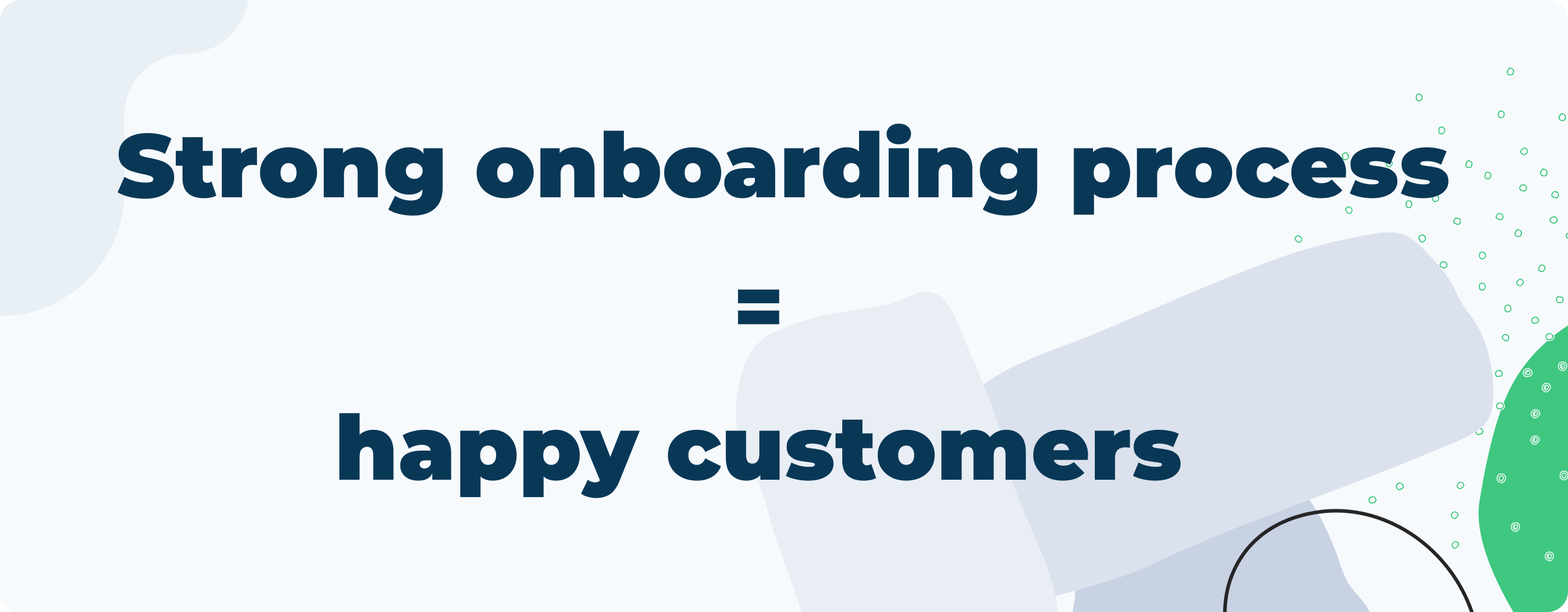Why companies need employee onboarding?

Highlights:
Why is onboarding so important for new employees?
How Is Onboarding Different From Orientation?
Nowadays, a lot of companies neglect employee onboarding when they hire new employees. From Harvard Business Review 22% of companies don’t have formal onboarding at all, while 49% only have a partially successful process. Do you know how unsuccessful onboarding looks like? New hires are unproductive, often stressed, feel like a gooseberry in the team, and are likely to look for a new job.
The lack of employee onboarding leads companies to spend ridiculous amounts of money on productivity reduction and employee turnover. Well organize onboarding increases employee engagement and keep them from resignation.
What is employee onboarding?
ExactHire gives the most appropriate definition of this phrase.
“Employee onboarding, also known as organizational socialization, refers to the mechanism through which new employees acquire the necessary knowledge, skills, and behaviors to become effective organizational members and insiders.”
The best companies organize and start the onboarding process before new hires’ first day. This allows new hires to get acquainted with the company before they begin to carry out their workload.
It is the procedure of integrating fresh talent into an organization, aiding them in becoming familiar with their roles, assimilating into the company culture, and adapting to their work environment. This encompassing procedure entails furnishing them with the requisite information, tools, and resources indispensable for excelling in their positions, aiming to make them feel like esteemed team members.
These strategies are vital for confirming that the new employee on board enjoy a quick and convenient transition into their newfound responsibilities, thereby diminishing any initial apprehension or ambiguity they might encounter. This onboarding employees approach encompasses the thorough preparation of trained new hires, ensuring their readiness for the job onboarding process and fostering a sense of being valued.
Why is onboarding so important for new employees?
Onboarding holds immense significance for numerous reasons:
It Allows New Hires to Become Acclimated
The onboarding processes allow people to acquaint themselves with the company's policies, procedures, and expected conduct. This facilitates their assimilation into the company and alleviates any initial unease or doubt they may harbour.
It Makes New Hires More Engaged With the Company
Well-crafted new hire onboarding initiatives foster a stronger connection between employees and the company's mission and values. Engaged team members are more inclined towards motivation, productivity, and commitment to their tasks, a primary objective of this process.
It Helps Employers Retain New Employees
A meticulously built onboarding process heightens the probability of retaining new employees. When individuals feel supported and adequately prepared for their roles, courtesy of the diligent training of new hires, they are less inclined to depart from the organization shortly after joining. This, in turn, contributes to a reduced turnover rate.
Onboarding prevents employee turnover
Employee turnover is the number of employees who leave the company and needed to be replaced. According to the Harvard Business Review once again, 33% of new hires look for a new job within their first six months on a new workplace, and 22% within the first 45 days.

Employee turnover is a predictable and avoidable process. 87% of employees are less likely to leave a company when they are engaged and feel cared about. Where to start developing employee engagement? The answer is — Onboarding! It will help introduce new hires to the company and engage them with the company's values, mission, and vision. This means new hires much less likely to look for another company that better fits their work culture.
Onboarding teaches new hires
Each new employee of the company must understand his role and responsibilities. Properly created onboarding includes training for newcomers. Training provides people with the knowledge they need to excel in their job role. They are also taught about the culture of the company which helps them align themselves with the company's values and principles.
Starting a new position in a new company can often seem overwhelming, with lots of new faces, information, and policies to learn. But providing your new hires with an employee handbook early on in their employment (think: first day) is a great way to make sure that the employee has all of the necessary information and also has a resource to constantly refer back to if they have any questions.
One of the best and easiest ways to bring all essential information to new hires is to make onboarding automated. Which tool to use is your choice. Today a lot of companies start using academies for their onboarding process. Academies can be filled with all types of content, and they are easily sharable.

New employees should clearly understand how their individual position is valuable to the company as a whole. Explaining to a new employee his role in the organization, you show that he is needed and that he is an essential link in many processes of your line of work.
As a result of more intense engagement with the company, employees are motivated to work efficiently and are much less likely to quit on you.
Onboarding reduces new hires anxiety
Being a new employee in a new company can be very stressful. To adjust this stress, employers should provide new hires will all the necessary information they need to fulfill their roles. Employee onboarding helps new people get to know each other and learn how to communicate effectively.

How Is Onboarding Different From Orientation?
Although both processes share a semblance of purpose, they serve distinct functions:
Orientation:
It typically comprises a one-time event or a brief process conducted during an employee's initial days or weeks. Its focus is on administrative tasks such as completing paperwork, providing a basic understanding of ways in your business and helping them to get acquainted with others and the workspace. Orientation forms a fundamental part of the whole onboarding process, laying the groundwork for the more exhaustive onboarding journey.
Onboarding:
It represents a more thorough and ongoing process beyond the initial orientation phase. It encompasses a sequence of activities and support mechanisms tailored to assist new team members in succeeding within their roles over an extended period. This includes comprehensive training, mentorship, feedback mechanisms, and continuous communication.
The onboarding process guarantees that people are consistently nurtured and guided, elevating their long-term prospects for success and active participation within the community.


